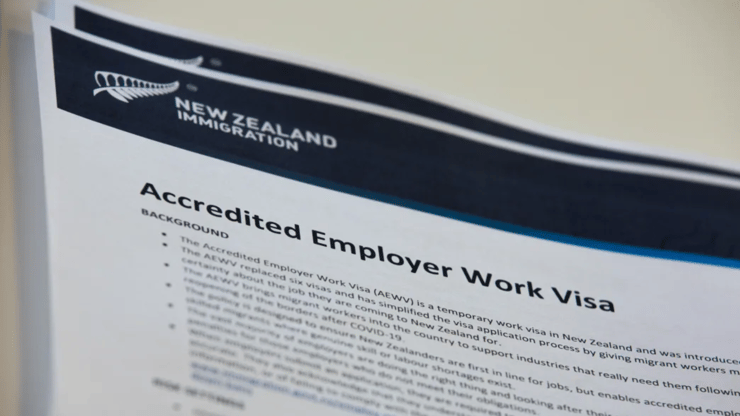Immigration NZ Boosts Law Enforcement To Combat Exploitation

Immigration New Zealand will soon be able to issue infringement notices to employers that aim to tackle lower-level immigration non-compliance and deter those exploiting migrant workers.
The new regulations come into effect on April 11.
Penalties for infringements include a minimum fine of $1000, the potential revocation of accredited employer or recognised seasonal employer status, and a ban on future visa applications for migrant workers, the duration of which would depend on the number of infringement notices an employer has received.
More serious breaches may result in criminal charges, Immigration New Zealand said.
According to Immigration New Zealand, these ban periods entail a six-month stand-down period for a single infringement notice, with an extra six-month stand-down period for each subsequent infringement notice and a maximum 12-month stand-down period for multiple notices issued concurrently.
Stephanie Greathead, national manager at Immigration Compliance, said most employers upheld ethical standards, fostering a mutually beneficial employment environment for employers and migrant workers.
"In the past, the only real significant deterrent option available to Immigration was prosecuting employers through the criminal court system," Greathead said.
"While that is still something we will continue to do, being able to issue employers with infringement penalties allows us to take immediate action against employers who aren't complying," she said.
"We will be publishing a stand-down list on the Immigration website naming those employers who have been penalised and stood down," she said. "This adds a layer of transparency."
Infringements can be issued for various violations, including employing people in breach of their visa conditions, hiring a person unlawfully in New Zealand or failing to comply with a 10-day information request.
"Non-compliance with these three requirements now has immediate consequences," Greathead said.
"The new tools make it easier to stop employers who have committed immigration offences from accessing migrant workers in the future," she said.
"It also ensures we have strong systems in place to enforce employment and immigration standards, which will help create a fair and level playing field for all employers in New Zealand."
Immigration New Zealand will soon be able to issue infringement notices to employers that aim to tackle lower-level immigration non-compliance and deter those exploiting migrant workers.
The new regulations come into effect on April 11.
Penalties for infringements include a minimum fine of $1000,...
Immigration New Zealand will soon be able to issue infringement notices to employers that aim to tackle lower-level immigration non-compliance and deter those exploiting migrant workers.
The new regulations come into effect on April 11.
Penalties for infringements include a minimum fine of $1000, the potential revocation of accredited employer or recognised seasonal employer status, and a ban on future visa applications for migrant workers, the duration of which would depend on the number of infringement notices an employer has received.
More serious breaches may result in criminal charges, Immigration New Zealand said.
According to Immigration New Zealand, these ban periods entail a six-month stand-down period for a single infringement notice, with an extra six-month stand-down period for each subsequent infringement notice and a maximum 12-month stand-down period for multiple notices issued concurrently.
Stephanie Greathead, national manager at Immigration Compliance, said most employers upheld ethical standards, fostering a mutually beneficial employment environment for employers and migrant workers.
"In the past, the only real significant deterrent option available to Immigration was prosecuting employers through the criminal court system," Greathead said.
"While that is still something we will continue to do, being able to issue employers with infringement penalties allows us to take immediate action against employers who aren't complying," she said.
"We will be publishing a stand-down list on the Immigration website naming those employers who have been penalised and stood down," she said. "This adds a layer of transparency."
Infringements can be issued for various violations, including employing people in breach of their visa conditions, hiring a person unlawfully in New Zealand or failing to comply with a 10-day information request.
"Non-compliance with these three requirements now has immediate consequences," Greathead said.
"The new tools make it easier to stop employers who have committed immigration offences from accessing migrant workers in the future," she said.
"It also ensures we have strong systems in place to enforce employment and immigration standards, which will help create a fair and level playing field for all employers in New Zealand."









Leave a Comment